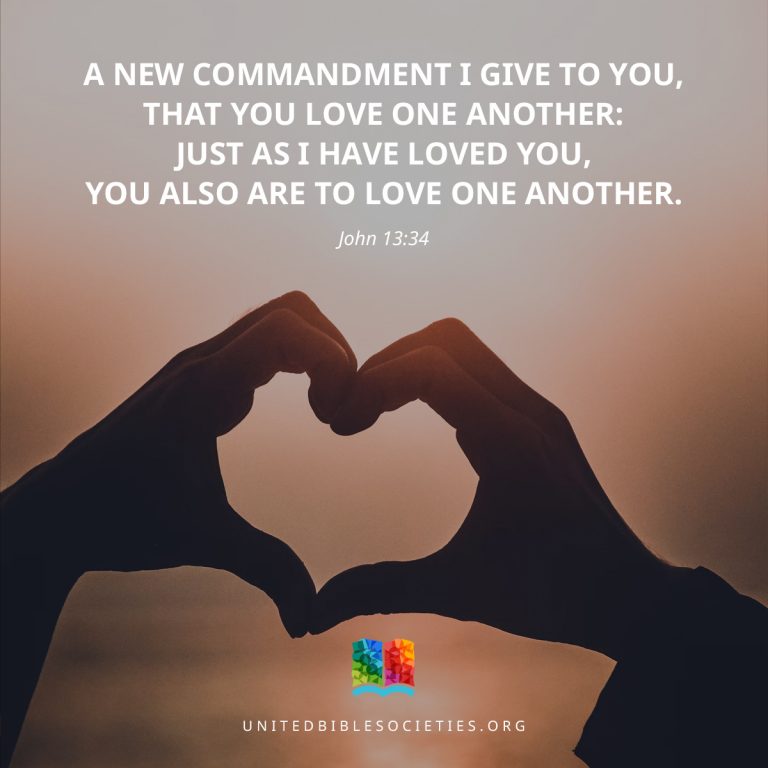Jesus at a Wedding in Cana
1 Three days later Mary, the mother of Jesus, was at a wedding feast in the village of Cana in Galilee. 2 Jesus and his disciples had also been invited and were there.
3 When the wine was all gone, Mary said to Jesus, “They don't have any more wine.”
4 Jesus replied, “Mother, my time hasn't yet come! You must not tell me what to do.”
5 Mary then said to the servants, “Do whatever Jesus tells you to do.”
6 At the feast there were six stone water jars that were used by the people for washing themselves in the way that their religion said they must. Each jar held about 100 liters. 7 Jesus told the servants to fill them to the top with water. Then after the jars had been filled, 8 he said, “Now take some water and give it to the man in charge of the feast.”
The servants did as Jesus told them, 9 and the man in charge drank some of the water that had now turned into wine. He did not know where the wine had come from, but the servants did. He called the bridegroom over 10 and said, “The best wine is always served first. Then after the guests have had plenty, the other wine is served. But you have kept the best until last!”
11 This was Jesus' first miracle, and he did it in the village of Cana in Galilee. There Jesus showed his glory, and his disciples put their faith in him. 12 After this, he went with his mother, his brothers, and his disciples to the town of Capernaum, where they stayed for a few days.
Jesus in the Temple
(Matthew 21.12Matthew 13Mark 11.15-17Luke 19.45Luke 46)13 Not long before the Jewish festival of Passover, Jesus went to Jerusalem. 14 There he found people selling cattle, sheep, and doves in the temple. He also saw moneychangers sitting at their tables. 15 So he took some rope and made a whip. Then he chased everyone out of the temple, together with their sheep and cattle. He turned over the tables of the moneychangers and scattered their coins.
16 Jesus said to the people who had been selling doves, “Get those doves out of here! Don't make my Father's house a marketplace.”
17 The disciples then remembered that the Scriptures say, “My love for your house burns in me like a fire.”
18 The Jewish leaders asked Jesus, “What miracle will you work to show us why you have done this?”
19 “Destroy this temple,” Jesus answered, “and in three days I will build it again!”
20 The leaders replied, “It took 46 years to build this temple. What makes you think you can rebuild it in three days?”
21 But Jesus was talking about his body as a temple. 22 And when he was raised from death, his disciples remembered what he had told them. Then they believed the Scriptures and the words of Jesus.
Jesus Knows What People Are Like
23 In Jerusalem during Passover many people put their faith in Jesus, because they saw him work miracles. 24 But Jesus knew what was in their hearts, and he would not let them have power over him. 25 No one had to tell him what people were like. He already knew.
aza 2
ṯaga ṯete kezir weni kaana
1 mer nani ŋwamin ṯɔɽɔl, na ṯaga nani ṯete kezir weni kaana weḏi jaliilŋw, na gwu lenyin kweḏi Yecu-ŋa nani ki ṯaga-na tɔk. 2 ner ornuti Yecuŋwuzi limeḏgen li eḏele ki ṯaga. 3 mezi nabiṯ amɽiṯaḏa, ta na lenyin kweḏi Yecu ŋa eca ŋwu: liti ledi klu nabiṯa mac. 4 na Yecu eca ŋwu: kwaw kwalu, a kweḏi ŋa karḏa nani nyi gwu a? lomur linyi liti limenyi ṯimayinizi kineni mac. 5 na lenyin eca yaḏaama ŋwu: muŋw andaci ŋaŋwuzi eḏerri kwɔmne kwere, e ta erri. 6 na ŋwii nani nyirlil kinaŋw ŋwukitarzelu, ŋweḏi ŋaw, kaka eḏi gwu yahuuḏ əḏya weḏi ṯuzuɽa nana. ŋwii ŋweḏi ŋaw-na ŋwere ŋwere ŋwir ŋaw lizapiya kaka ṯuḏni ya dufɔkwɽeny. 7 nezi Yecu eca ŋwu: urezer ŋwii ŋaw. ner zi urezi kworɔ dedep. 8 ta nuŋw zi eca ŋwu: pezerzi ma ŋɔkɔ, ezefizi kwijowiṯi kweḏi ṯaga. ner zi efizi. 9 na ma kwijowiṯ nyeŋlani ŋaw ŋimɔ rɔḏine nabiṯ, nuŋw zi ere elŋece ezir winḏir gwu mac, na yaḏaam yipezezi orɔ yilŋiicazi. na kwijowiṯ ornuti kworu kweḏi ṯaga, 10 nuŋw eca ŋwu: lizi leṯi pa inḏeḏa lirina nabiṯa kwizaw kerreny, mindaŋ mer adiḏi eḏi be ta, eṯir zi ma inḏeḏa kwajila kworɔ; na ŋa kwumɔ duŋgweci kwizaw mindaŋ kirem kwumorɔ. 11 na Yecu erri kwɔmne ŋgwu ṯayṯi kwir ŋilim kezir weni kaana weḏi jaliilŋw, nuŋw gi ruwezi ŋiniṯi lu ŋuŋun. ta na gwu ma limeḏgen emnizi, ner alliḏa ŋunduŋwu rugwori nana. 12 kwaḏan ta, ner ele kafranahum lenyin ŋali, lieŋgen li, na limeḏgen tɔk, ner gwu nani ŋwamin ŋwere caw.
Yecu muŋw gwu ruta lizi liruza heykala luŋw
13 na iid weḏi yahuuḏ weni ṯiṯamḏa ŋiɽany adiḏi, na Yecu taŋi urzaliim. 14 nuŋw zi kaṯazi ki heykal-na kla leṯiilila nyiḏri, yaŋal yi, lurru li-na rac, na kla leṯupupi kwuruuza-na tɔk, linanalu. 15 muŋw emme luta, nuŋw li ruti yaŋali, nyiḏri nyi-na rac, nuŋw zi ru ki heykal-na. nuŋw balaci loru kla kwuruuza lu, nuŋw zi ṯanyaci rarbeza la. 16 nuŋw zi andaci kla leṯiilila lurruŋi, nuŋw zi eca ŋwu: uṯir zi kiṯay, eṯi ruza duənuŋw lu kweḏi Papa kwinyi kaka ḏukwan ṯeḏi yiili mac. 17 na limeḏgen aɽazi yey ŋiɽaŋal ŋa dap, ŋuluḏina, ŋaruŋw:
zurum kwenyi yaḏa ki duənu kwɔŋwa.
18 nezi yahuuḏ aalanizi, ner eca ŋwu: ŋilim ŋir ṯaŋ ŋenyji baŋaci, erra ŋa ma kwɔmne ŋgwu? 19 nezi Yecu eŋnici, nuŋw zi eca ŋwu: kiyazar heykala lu wu wirlinelu ter, enyi ta aci, enyi ta ṯimazi ki ŋwamin ṯɔɽɔl. 20 ta na yahuuḏ eca ŋwu: ner aci heykala wu yiḏleyu ruɽi-riɽen-nyirlil, na a kwiili ḏa mindaŋ ma yi aru ŋwu: ki ŋwamin ṯɔɽɔl enyi aɽazi? 21 lakin na aŋna wuŋwun orɔ wandizaŋw yi, wuruzaŋw heykal. 22 muŋw ṯa diɽi ŋiɽany-na, ta na gwu limeḏgen aɽazi yey ŋa ŋandizaŋw zi; ner zi emni ŋuluḏina, na ŋa ŋandizazi Yecu tɔk.
23 kinaŋw muŋw nani urzaliim, ki iid-na weḏi kuruu keni tiṯamḏa ŋiɽany, ner alliḏa luru yiriny yuŋwun rugwori nana, mer eze ŋilima ŋerraŋw zi. 24 lakin na Yecu ere alliḏa ŋunduŋwuzi ṯugwori nana mac, 25 kaka ilŋiicaŋw gwu ŋundu lizi tatap; nuŋw ere naŋni kwere mac eḏi zi ŋi unḏizi ki ŋeḏi kwizigwunaŋ, kaka ilŋiicaŋwzi gwu ŋundu rac ŋinani kwizigwunaŋ-na.


